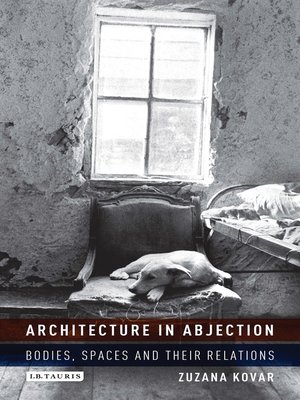Architecture in Abjection
ebook ∣ Bodies, Spaces and their Relations · International Library of Architecture
By Zuzana Kovar

Sign up to save your library
With an OverDrive account, you can save your favorite libraries for at-a-glance information about availability. Find out more about OverDrive accounts.
Find this title in Libby, the library reading app by OverDrive.



Search for a digital library with this title
Title found at these libraries:
| Library Name | Distance |
|---|---|
| Loading... |
This book marks a turning point in architectural theory by using philosophy to examine the field anew.Breaking from the traditional dualism within architecture - which presents the body as subject and space as object - it examines how such rigid boundaries can be softened. Zuzana Kovar thus engages with complementary and complex ideas from architecture, philosophy, feminist theory and other subjects, demonstrating how both bodies and bodily functions relate deeply to architecture. Extending philosopher Julia Kristeva's notion of abjection - the confrontation of one's own corporeality as something is excreted - Kovar finds parallels in the concept of the 'scaffold.' Much like living bodies and their products can impact on the buildings that house them - old skin cells create dust, menstrual blood stains, our breath heats and cools surfaces - scaffolding is similarly ephemeral and yet not entirely separable from the architecture it supports.
Kovar shifts the conversation about abjection towards a more nuanced idea of architecture - where living organisms, building matter, space, decay and waste are all considered as part of a continual process - drawing on the key informing works of thinkers like Gilles Deleuze and Felix Guattari to do this. Including a number of experimental projects conducted in the spaces inhabited by the author herself to illuminate the theory at its core, the book forms a distinguished and pioneering study designed for practitioners and scholars of architecture, philosophy and visual culture alike.
Kovar shifts the conversation about abjection towards a more nuanced idea of architecture - where living organisms, building matter, space, decay and waste are all considered as part of a continual process - drawing on the key informing works of thinkers like Gilles Deleuze and Felix Guattari to do this. Including a number of experimental projects conducted in the spaces inhabited by the author herself to illuminate the theory at its core, the book forms a distinguished and pioneering study designed for practitioners and scholars of architecture, philosophy and visual culture alike.







